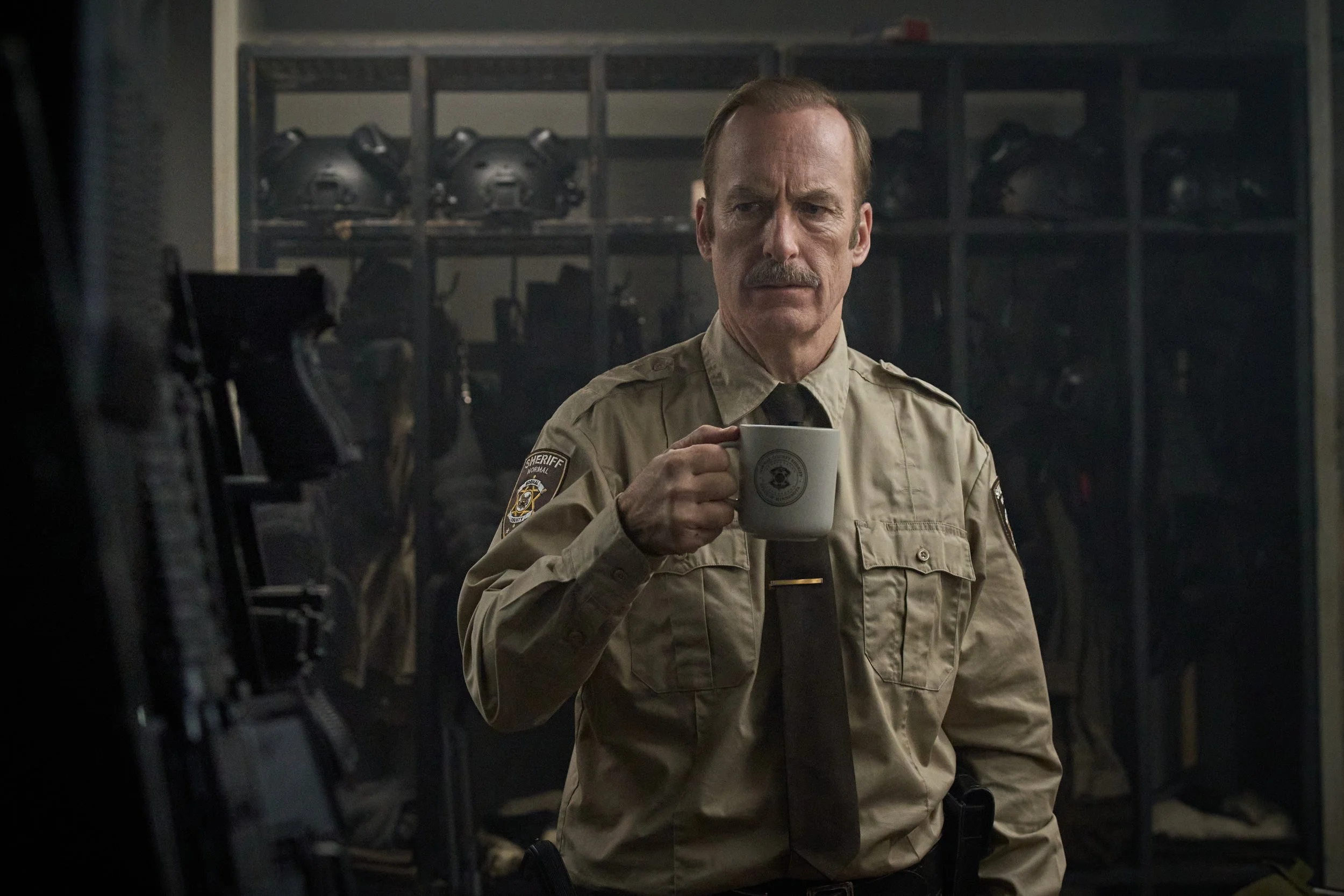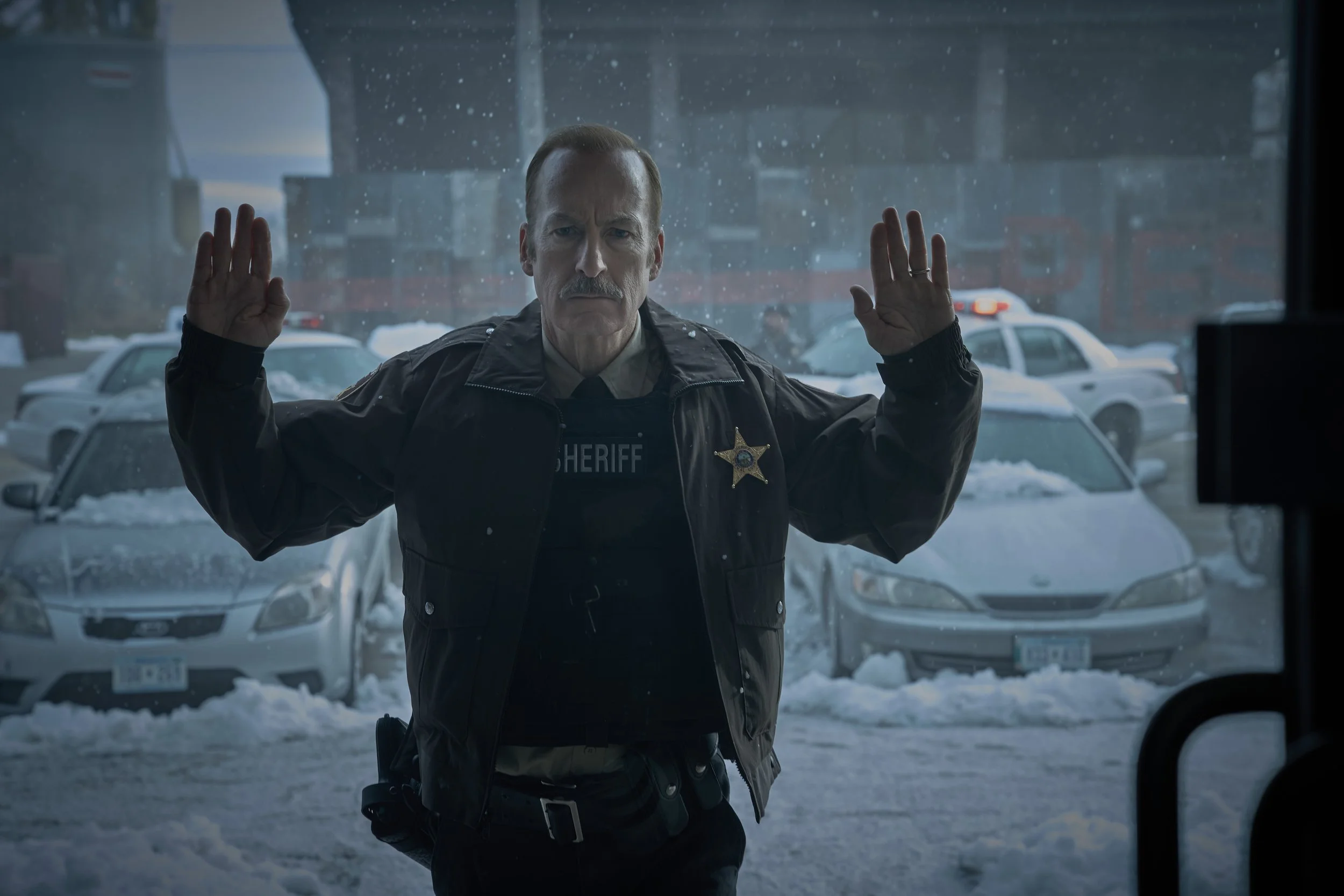TIFF 2025: ‘Normal’ Review
Arguably one of the most promising voices in genre filmmaking when he emerged on the scene in 2009 with his debut feature-length film, Down Terrace, Ben Wheatley has been comfortably churning out films every few years, both within the Hollywood system and outside of it. He’s become a dependable, workmanlike director whose distinct voice can get a little lost when he’s not also writing and/or editing his own films. Normal—a film that sees him directing a screenplay from Derek Kolstad (John Wick, Nobody) and starring Bob Odenkirk in another action role after two Nobody films—is one of the most middle-of-the-road films that finds comfort in Wheatley’s direction. Although it never leaves a lasting impression, the brief flashes of inspired, creative action and plotting, led by a more comedic presence from Odenkirk than in his past action outings, result in a mildly entertaining neo-Western where the violence that spills out onto the streets of a small town is both exhilarating and humorous.
There’s an economical way that Normal is told that is somewhat endearing. Ulysses (Odenkirk) arrives as an interim sheriff while the small American town of Normal goes through an election process after the mysterious death of the previous sheriff. Immediately, something feels off about the town, and the way everyone seems to be hiding something doesn’t help assuage any suspicions from Ulysses. It’s not until a bank robbery takes place that threatens to expose the town’s secrets that Ulysses becomes caught in the crossfire of a town protecting their own and a relationship with some international criminals that has their hands thoroughly bloodied to the point where killing Ulysses is an easy decision.
It’s all a very streamlined way of getting straight to the action, where Wheatley previously proved his mettle in the electrifying Free Fire. It’s been a long time since that film’s expertly crafted cocktail of insults and bullets, but Wheatley proves he hasn’t lost a step since 2016. Accidental kills played for laughs are a riot—including a fairly significant kill early on that shows Kolstad’s screenplay is willing to trim off as much fat as it can in exchange for a leaner screenplay. There’s a playfulness to the mayhem once it breaks loose that elevates an otherwise obvious riff on Edgar Wright’s Hot Fuzz into a lively siege film. It has its apparent Western influences, as seen in the plot of a sheriff arriving in a small town only to discover its levels of corruption run deep. Still, it’s also representative of late-stage capitalism, where small towns like Normal (and the one in Nobody 2) struggle to thrive without finding an alternative means for financial support—though usually it doesn’t involve nefarious activities, you’d hope.
This neo-Western approach was exactly what I wanted out of this year’s Kolstad-scripted Nobody sequel, and it gives the film a more playful tone without sacrificing the stakes for the town. The problem is that the screenplay always seems to be willing to spin its tires, and eventually, when it no longer wants to, it abandons the vehicle completely. Outside of the main plotline that places Normal within the crosshairs of the Yakuza, Kolstad’s script drops plotlines and remains selective on character development to a point where it’s not really about much other than how Ulysses will get himself out of this mess. Who Ulysses is as a person is given vague allusions in flashbacks and occasional remarks until a clearer image forms, but it’s all obfuscated so as not to have to wrestle with the moral injuries he’s sustained from his past. The film needs a hero, so the fewer characters that matter and the less development they receive, the easier it is for the film to rest on its action.
This is disappointing because there’s a bevy of supporting characters in here who are given very little to do. When their moral alignment is called into question, the screenplay finds it easier to take a side for them than to let the characters grapple with their own moral dilemmas. Which is something worth calling to attention when Ulysses’ arrival turns into an opportunity for characters to contemplate escaping their predicament. Characters get sidelined if they might create too many potential complications for the narrative, or they’re allowed to leave the town because they don’t pose much of a threat to their operations—the latter of which is a much more interesting concept when most siege films can’t let anyone survive unless they make it to the end. It’s a shame that the supporting cast feels wasted in these underwhelming characterizations, leaving actors like Henry Winkler and Lena Headey to breathe life into one-note roles.
Odenkirk’s action roles have now placed much of the emphasis on him, and that remains true with Normal. His folksy, Fargo-esque Ulysses is endearing with a confidence in his abilities that keeps the film barrelling forward. It’s difficult not to compare his Nobody performance to this one—an everyday guy whose past training has informed his willingness to stand his ground—but Normal had the potential to be more than just the Odenkirk show. Wheatley’s action prowess remains infallible and downright entertaining when the bullets are flying; Kolstad’s worldbuilding continues to be interesting as its ambitious scope comfortably narrows itself through attrition; and the small town's fight for survival could have become more than just a powder keg of nameless faces prolonging an inevitable explosion. There’s ambition in the film’s set-up, but it slowly whittles itself down into another mildly crowd-pleasing action vehicle for Odenkirk, slightly elevated by Wheatley’s direction.
The 50th Toronto International Film Festival takes place between September 4th and 14th. Normal celebrated its World premiere on September 7th, as part of TIFF’s Midnight Madness program. The full list of films selected for the festival can be found here.


